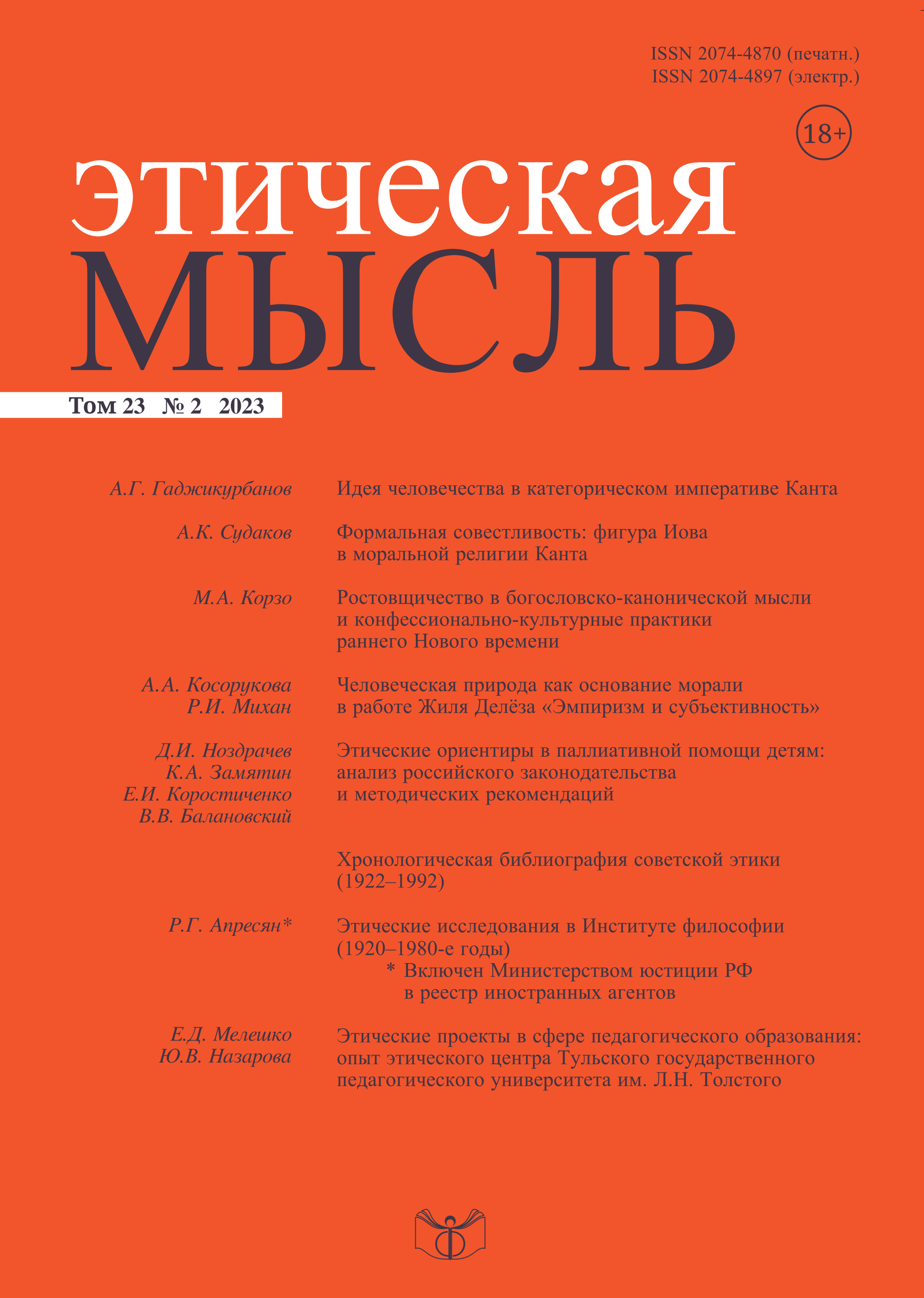The Idea of Humanity in Kant’s Categorical Imperative
DOI:
https://doi.org/10.21146/2074-4870-2023-23-2-5-19Keywords:
Kant, categorical imperative, moral act, self-valuable act, teleology of nature, expediency, Mankind, noumenon, moral being, sacred thingAbstract
Kant’s categorical imperative is associated with a type of moral act that endows it with some self-sufficiency, an objective necessity in itself without defining any goal. The peculiar aimlessness of a moral act becomes its important distinguishing feature. The definition of the moral principle in terms of the teleology of an inherently valuable act of moral will is directly related to the version of the categorical imperative that we are considering. In it, every person (as a rational being and a representative of the idea of Humanity) to one degree or another turns out to be a priority object of the practical application of the categorical imperative, since it is considered as an intrinsically valuable entity, or a goal in itself. The universe of Kant, or the world of nature, is a highly expedient device, the ultimate goal of which is man as a moral being. The status of man as the ultimate goal of nature opens up a new perspective for him – the acquisition of a supersensible status and moral freedom. In this property, a person is already designated by Kant as a “noumenon”. In the version of the categorical imperative that we are considering, Kant actually declares that the exclusive goal of the moral aspiration is not just a person, but humanity (Menschheit), which the individual “in his own person” or “in the person of any other” only represents. He also calls it the intelligent world (mundus intelligibilis). Man as a moral being is so valuable that one can see in him the ultimate goal of nature and the goal in himself. What makes him so is his belonging to a higher reality, to the realm of ends, or to Humanity as such. Kant takes one more step, elevating Mankind and moving from the moral to the religious space. He turns Humanity into a sacred thing.









